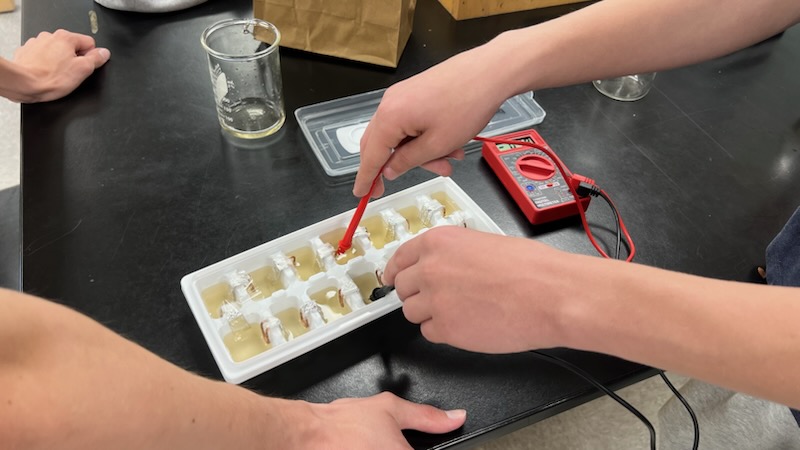The lifestyle of American teens continues to heighten in its level of frenzied activity due to the advent of lightning fast drive-thrus, high-speed technology, and an impatient society. The age of multi-tasking has also brought about a decline in adolescents’ physical quality of life. A disturbing trend in the health of younger generations continues to emerge.
Children and adolescents have been found to be a growing assemblage of an overweight society soon to become an adult generation.
According to a chart from the American Obesity Association’s website, www.obesity.org, 15.3% of children between the ages of six and eleven and 15.5% of teens between the ages of twelve and nineteen are clinically obese.
As the trend of obesity in children carries on into the teen years, a guru for the cause of teen health on campus, P.E. teacher Eunie McEntee, commonly attributes unhealthy eating habits, a lack of exercise, and the changing of the times as the causes.
“What we do in our leisure time is different now because the rise of television and computer makes kids more sedentary,” McEntee said. “Simply exchanging a sit-down family meal for a quick-serve meal and easy fixes for weight loss are the major causes.”
According to Dr. Robert H. Eckel on the American Medical Association’s website, www.ama-assn.org, the plight of poor dietary decision-making and a schedule too busy to incorporate exercise will cause the future adult generation very daunting health risks.
“The fattening of America is causing increasing concern about potentially fatal conditions,” Eckel, a leading expert in obesity, metabolism and atherosclerosis, said. “These conditions include heart disease, high blood pressure, blood clots and stroke.”
Many students surpass the deterring habits for a healthier lifestyle and make use of campus sports programs as a remedy.
“I can eat whatever I want because I know I’m going to work it off,” Hillary Kell, ’05, said. “School sports keep me in shape by keeping me accountable because I have no choice but to exercise every day.”
Even students who choose not to utilize physical education and extracurricular sports programs use time and resources outside of school to stay fit.
“I want to get the most out of my body so I make sure to keep myself healthy,” Jonathan Howard, ’03, said. “To stay in shape I take a jiu-jitsu class every day; run a lot to boost my metabolism; and boycott sodas and sweets for the most part.”
Although the demise of American teenagers’ quality of life will eventually cause dietary downfall, coping with inconvenience and putting extra effort into relinquishing meager fitness habits and sensible dietary choices attain the singular remedy to this growing trend.






